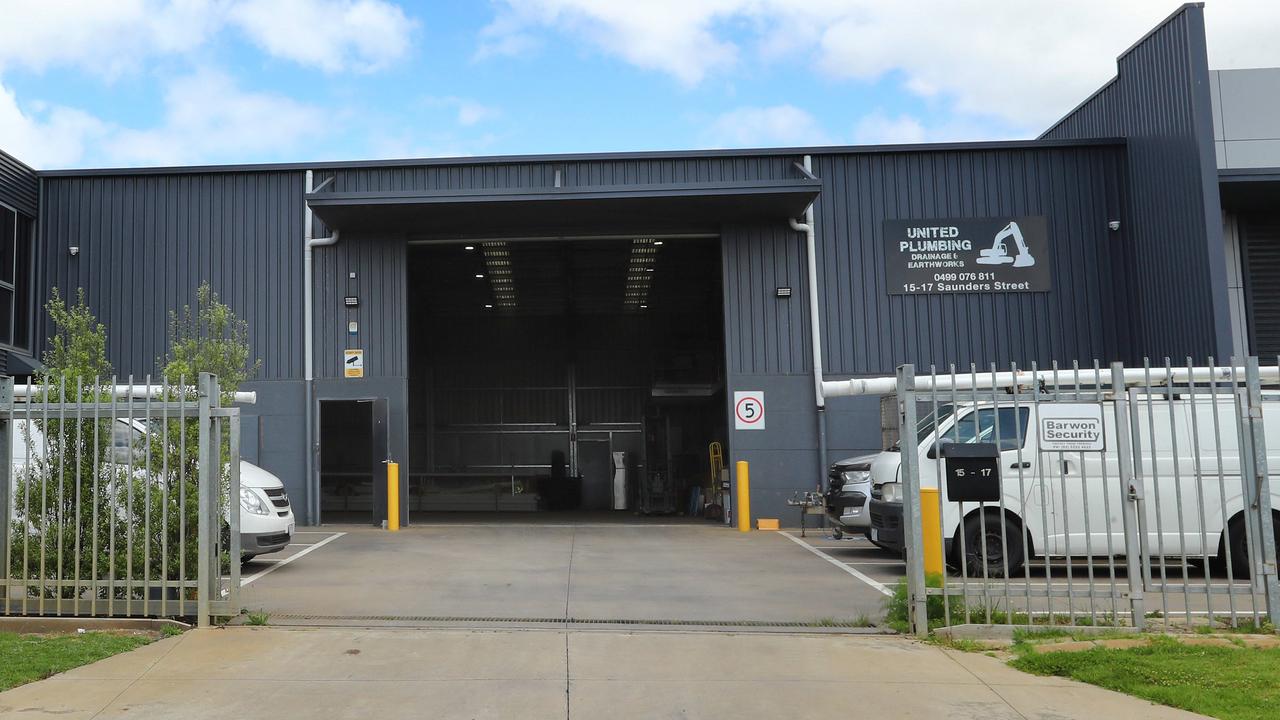Institutional abuse: A city’s scars laid bare
Survivors of institutional abuse are telling their stories in a bid to heal, after being allowed to launch fresh compensation claims and overturn insultingly low payments.
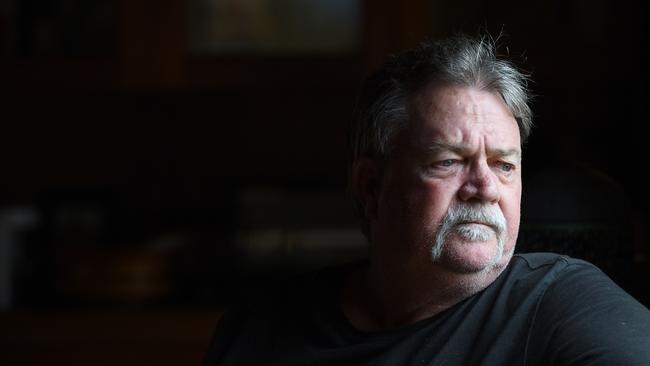
Geelong
Don't miss out on the headlines from Geelong. Followed categories will be added to My News.
Institutional abuse was once rife across Geelong, and even after the city’s most shameful secret was exposed, survivors were offered insultingly low compensation – and made to waive any rights to future civil action in order to access what little restitution was available. Now, after recent legislative changes, survivors are able to launch fresh compensation claims against the institutions responsible for irreparably damaging their lives. HARRISON TIPPET speaks to some of the survivors reopening old wounds in an attempt to better heal.
Just before he shot himself, Chris Pianto phoned his neighbour.
“I said, ‘Shirl, when you hear a bang call us an ambulance will ya?’, and she said ‘why?’
“I said, ‘just call an ambulance when you hear a gunshot’.”
Thirty-five years later Chris can recall the exact details of how he fired a bullet through his leg – and the trauma and frustration that led him to that desperate act.
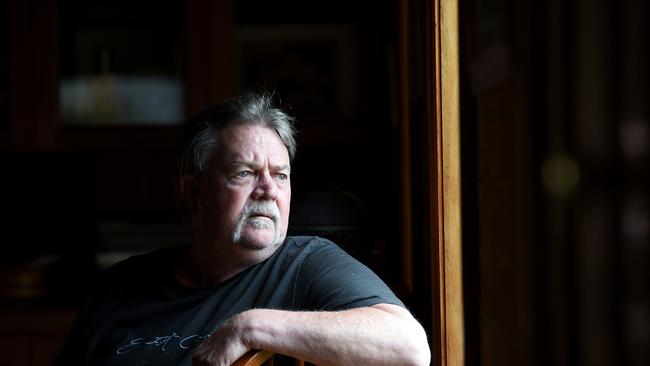
It was 1987, and the then-29-year-old had just been rejected by the Victorian Department of Public Prosecutions as a credible witness against the St Joseph’s College teacher who had repeatedly molested him as a child.
Shortly before this, the school had also refused to act on his claims, with the head of the Christian Brothers suggesting he was fantasising.
So, in a calculatingly gruesome cry for attention, the keen shooter turned one of his guns on himself.
“I thought ‘f---k it, let’s see if he can get out of this one’,” Chris says, sitting at the dining table of his double-brick Clifton Springs home, with a mug of coffee steaming in his rough hands.
Chris describes loading his single-shot .22 rifle – he figured his shotgun would have caused far too much damage, his air rifle too little – and working out where best to point the barrel.
“Before I did it, I grabbed me leg to try and work out where the bone was. I wanted it to look as graphic as I could, without doing too much damage,” he says.
“Once I got an idea where the main bone – the femur I think it is – was, I got it up where I thought I’d just miss it,” he says, mimicking aiming the rifle through the top of his left thigh.
“I pulled the trigger, and it went off, and fluid started squirting out with me heartbeat.
“I didn’t know if I’d go into shock. I didn’t know if I’d black out or what would happen. I didn’t know if it was going to hurt or how much it would hurt.
“In the end it didn’t really hurt at all.”
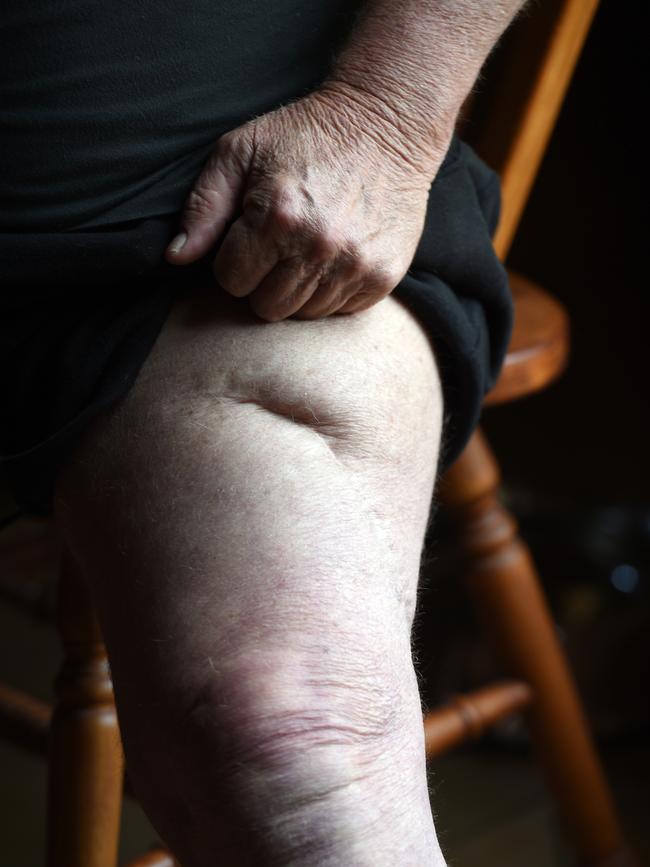
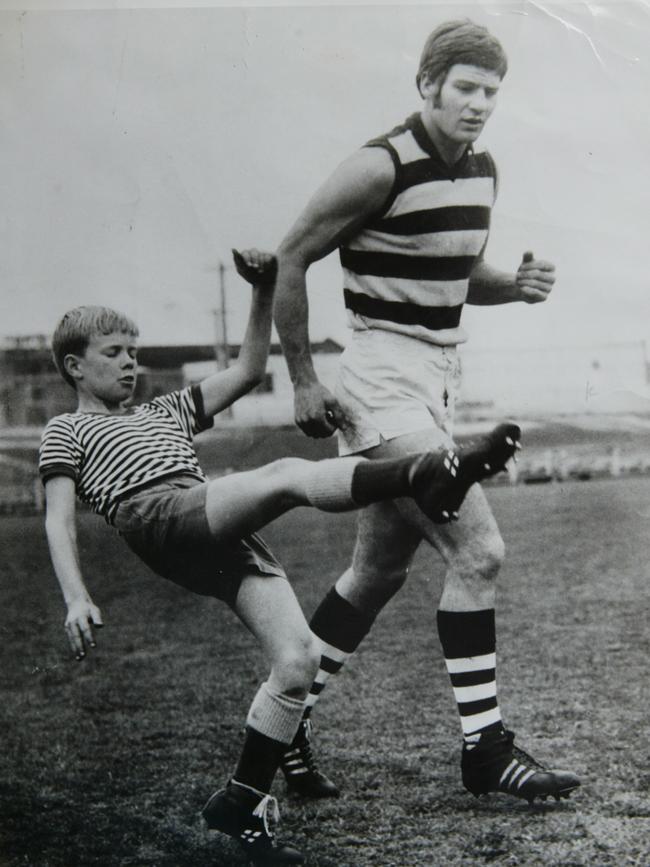
With a double shot of adrenaline coursing through his veins, some leaking out onto the floor in the miserable puddles of blood, Chris lit up a smoke, opened a bottle of beer, and sat waiting until Shirl, a local policeman, and paramedics eventually arrived.
Later, in Geelong hospital, a reporter arrived too, and Chris shared his story publicly for the first time, helping to spark a “f---ing wildfire” which would see dozens – if not hundreds – of other survivors come forward and reveal their own stories of institutional abuse at St Joseph’s and elsewhere in the region.
Asked if his cry for attention worked, Chris responds through a barely perceptible smile: “Yeah, big time”.
CHRIS Pianto is one of countless Victorian survivors of institutional abuse now launching fresh compensation claims – having previously received insultingly low restitution payments.
The ability to repursue old compensation has only been available since 2019, when the State Government amended the Limitation of Actions Act 1958 to allow Victorian courts to set aside past ‘deeds of release’ – the agreements typically signed by survivors in order to receive settlements, waiving their rights to future civil action.
It seems absurd to put a price on a lifetime of trauma triggered by child abuse, but that’s exactly what the legal system is regularly tasked with doing.
And before 2019, it apparently wasn’t worth much.
The Catholic Church’s ‘Melbourne Response’, for instance, had compensation payments capped with an average payout of $36,000 – with victims required to sign deeds of release.
But now, renewed claims are attracting payments in the millions.
“We recently settled a case for $2.4 million for a survivor who had previously been considered to be only worthy of $100,000,” says Kim Price, principal at Arnold, Thomas and Becker Lawyers.
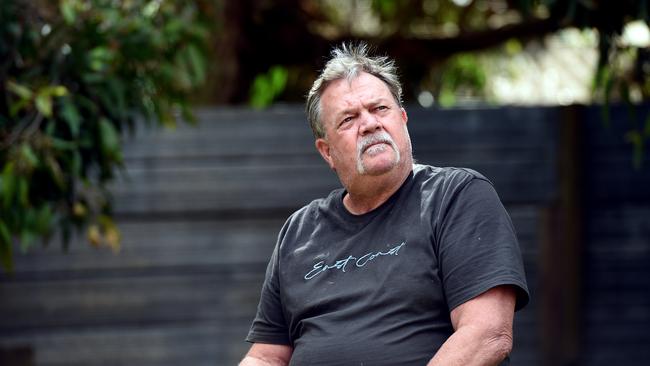
“We’re currently pursuing claims for dozens of survivors of abuse perpetrated at Geelong-based institutions, including the Department of Human Services, Geelong Grammar, St Joseph’s, St Thomas’, and St Augustine’s orphanage.
“We are finding that the proper sums of compensation they are receiving, while not taking away their trauma, to be empowering and life-changing, allowing our clients to start rebuilding their lives.”
Slater and Gordon principal abuse lawyer Jane McCullough says her firm is also representing multiple Greater Geelong survivors revisiting earlier claims – almost all of whom describe their previous compensation experiences as “akin to being re-abused by the institution”.
“There is so much anger about past experiences with Catholic and other institutions, and the way these claims were dealt with by the institutions and the tactics used, that many people are coming forward to pursue further, fairer compensation,” Ms McCullough says.
PAUL* surfs alone every morning, avoiding other people in the breaking dawn sunlight.
Other surfers call people like Paul ‘shark bait’ – as those who venture into the water as the sun rises or falls are more likely to meet the apex predators who actively feed during low light.
But a shark wasn’t responsible for Paul’s deep emotional scars; that predator was a Physical Education teacher at St Joseph’s.
And the fact that the abuse he suffered at his hands was deemed to be worth just $17,000 hurt almost as deeply.
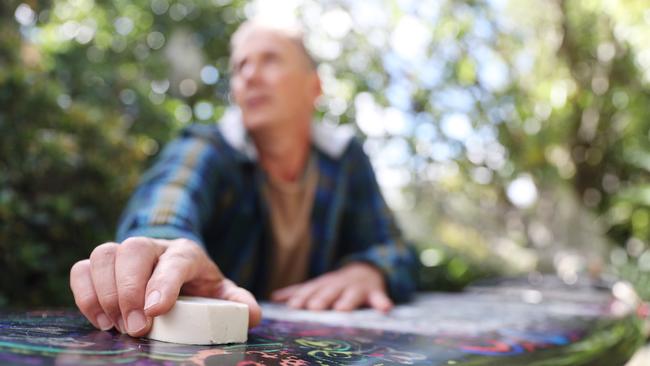
“My lawyers got twice as much,” he bitterly recalls, sitting in the living room of his partner’s Surf Coast home. The house is meticulously tidy and ordered, the result of Paul’s obsessive-compulsive disorder, a condition often sparked by childhood abuse, he explains.
Paul recalls being one of the many victims of teacher John Coogan, abused on about 20-30 occasions during a few wretched months in 1978. He was just 13, but his life was utterly ruined.
It was about a decade later that he went to the authorities, eventually receiving a settlement in the mid-1990s – which he now believes only added to his trauma.
There’s no polite way to describe how he feels about that pitiful payment, or his life since Coogan systematically groomed him before repeatedly molesting him in his curtained, double-locked office.
“At the end of the last settlement I felt like a prostitute,” he says, virtually spitting the words out.
“I felt f---ed over by the Christian Brothers, f---ed over by Joeys, f---ed over by my lawyers – and that’s how I’ve felt: f---ed over, for 30 years.”
“I have nothing. I’ve been a transient a lot of my life, living in share houses and moving around heaps. Shit jobs, unemployment benefits, Centrelink payments for years. I suffered from depression for many years, on and off medication during the 90s and early 2000s.
“I self-medicate these days and continue to take cannabis every day to help me sleep and cope. I can probably count on my two hands the number of days the last 40 years I have not drunk or taken cannabis.
“I don’t really have any friends at all and consider myself to be a loner.
“I’ve never had children, been married, or owned a home.
“I could have been so much more.”
Paul is listed to face the Christian Brothers in Victoria’s Supreme Court in October, as he attempts to receive more meaningful compensation for those deep scars inflicted upon him while at St Joseph’s.
MOST children fear imaginary monsters. The ones lurking under beds ready to snatch a wayward foot after the lights have been flicked off at night and to gobble up little boys and girls.
But for many kids who grew up in Geelong last century, the monsters they dreaded most walked among them.
Often, they were the men charged with caring for young boys at schools or orphanages, teaching them, training them, shaping them as budding adults.
They were also the men who took what they wanted from these boys, leaving them confused and broken, with deep psychological scars which would never fully heal over.
The institutional abuse of children was grotesquely rife in Geelong. It is impossible to accurately quantify but has been partly brought to light by the courage of many survivors who have come forward.
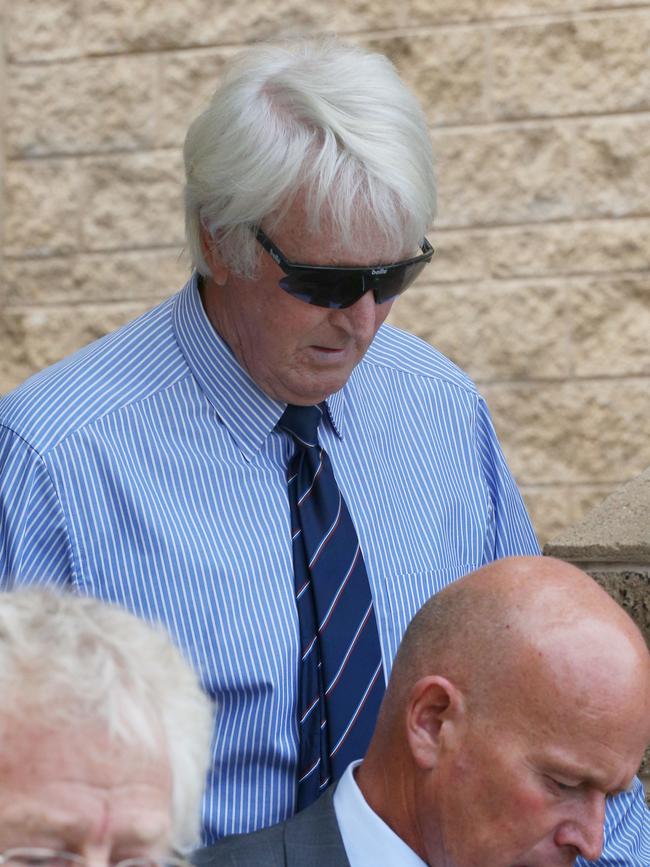
Chris Pianto’s abuser Alan Swingler was sentenced to seven years jail with a five-year minimum, after Chris and others told their stories. Paul’s abuser John Coogan – who also taught at North Geelong High and Bell Park High School – got five years for 17 counts of indecent assault on multiple boys.
Just last year William Houston was jailed for the historic abuse of two children at St Augustine’s boys’ home in Highton, having already been jailed for the abuse of six others.
Three former Geelong College teachers have been convicted for the sexual abuse of students.
Four Geelong Grammar teachers convicted for their crimes against more than 40 students. Countless reports of abuse come from survivors of Geelong’s 13 former orphanages.
Few men committed more evil in Geelong than these men of God, who were anything but.
The final report of the Royal Commission into Institutional Responses to Child Sexual Abuse was handed to the Governor-general on December 15, 2017, and contained sobering findings of our “national tragedy”.
An analysis of the experiences of 6875 survivors found most were male (64.3 per cent), more than half were aged between 10 and 14 years when their abuse began, almost all perpetrators were men (93.8 per cent), and the average duration of the abuse was for a staggering 2.2 years.
“Tens of thousands of children have been sexually abused in many Australian institutions. We will never know the true number,” the report’s executive summary noted.
“Society’s major institutions have seriously failed. In many cases those failings have been exacerbated by a manifestly inadequate response to the abused person.”
IT was about 5pm on the day before Craig* was set to appear in Victoria’s Supreme Court earlier this year, when the Christian Brothers offered up a $1.2m settlement.
That was in late March, almost half a century after he first fell victim to John Coogan as an eight-year-old at St Joseph’s – where he would be molested on more than 400 occasions over the next six years.
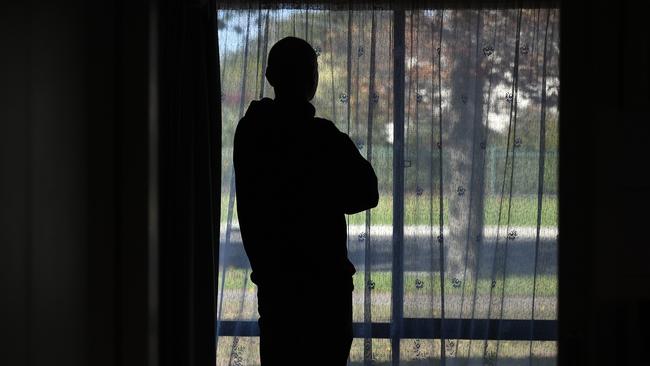
Life never returned to any sense of normal after the abuse stopped, and the “manifestly inadequate” settlement he received in the 90s did little to help him heal.
Even $1.2m can’t make the pain simply dissolve.
“It’s a debilitating life sentence,” Craig says, from the blanket-covered couch of his Geelong living room, discussing his trauma in an articulate but blunt manner. “It completely destroys you.”
“It doesn’t mean I have flashbacks every night. It just means it’s pretty hard not to be dead inside, and not to feel like you’re somehow out of your body and separated from reality – which was the escape when the abuse was happening, you just get outside yourself.
“Your childhood is completely stolen from you.”
With no such thing as a fairytale happy ending for an institutional abuse survivor, Craig is judicious about how a more substantial compensation payment can actually help.
“No amount of money will make any difference,” he says. “It’s about justice and recognition. It’s about the fact now I’m financially secure, and money is one thing less that I have to worry about.”
“It’s validation.”
Chris, Paul and Craig all have similar responses when asked how greater compensation can help survivors heal – ‘it’s not just about the money’.
Chris Pianto even jokes about how great it would feel to just burn a cash payout in front of the institutions’ legal representatives.
But the money is about something more.
It pays debts. It makes counsellors, mental health services and medication affordable. It can help pay off a mortgage or buy a car that starts each morning when you twist the key into the ignition. It pays for time to stop worrying about financial problems.
It pays for healing.
Support for survivors of child sexual abuse – call Lifeline on 13 11 14
* Using a pseudonym to protect their identity.
More Coverage
Originally published as Institutional abuse: A city’s scars laid bare



